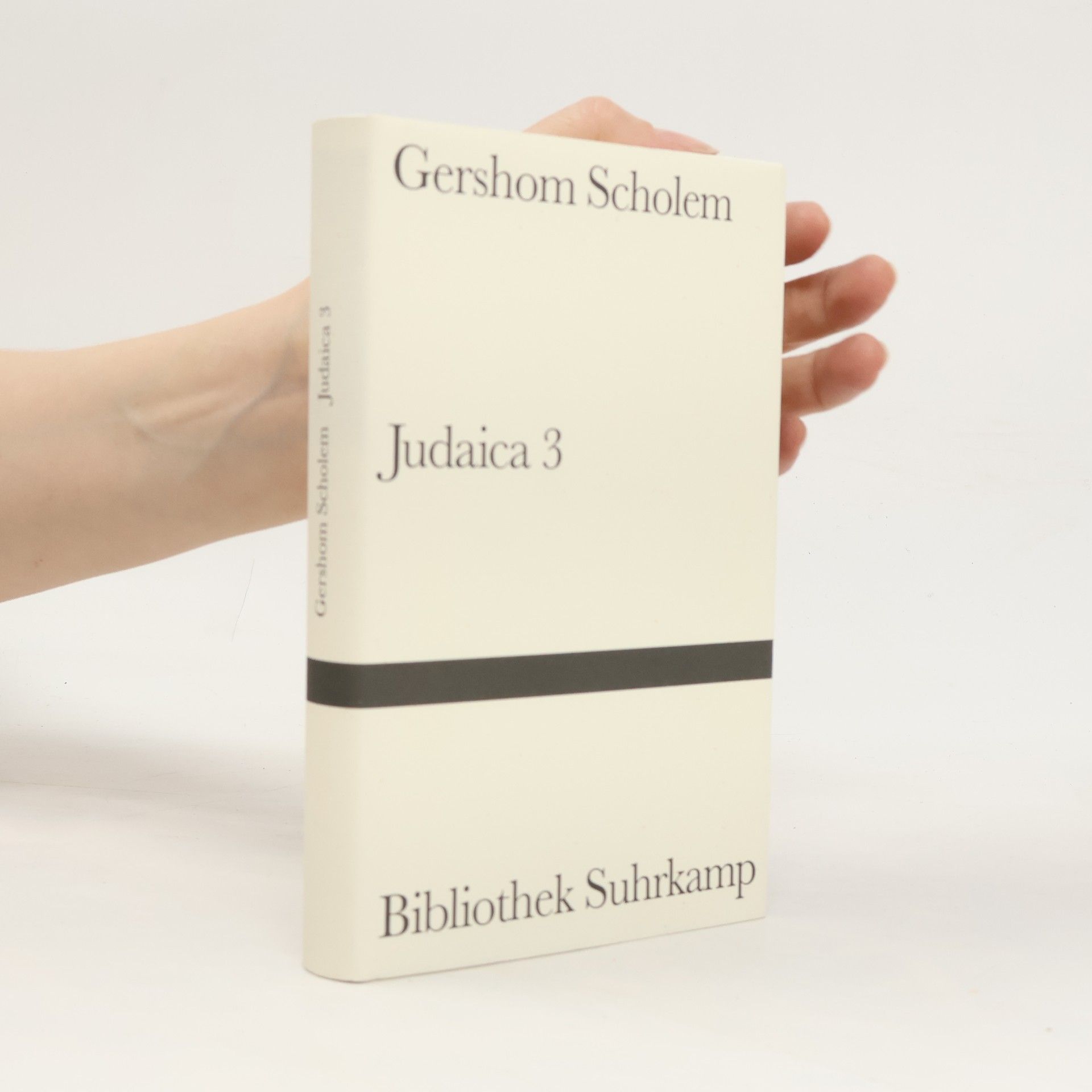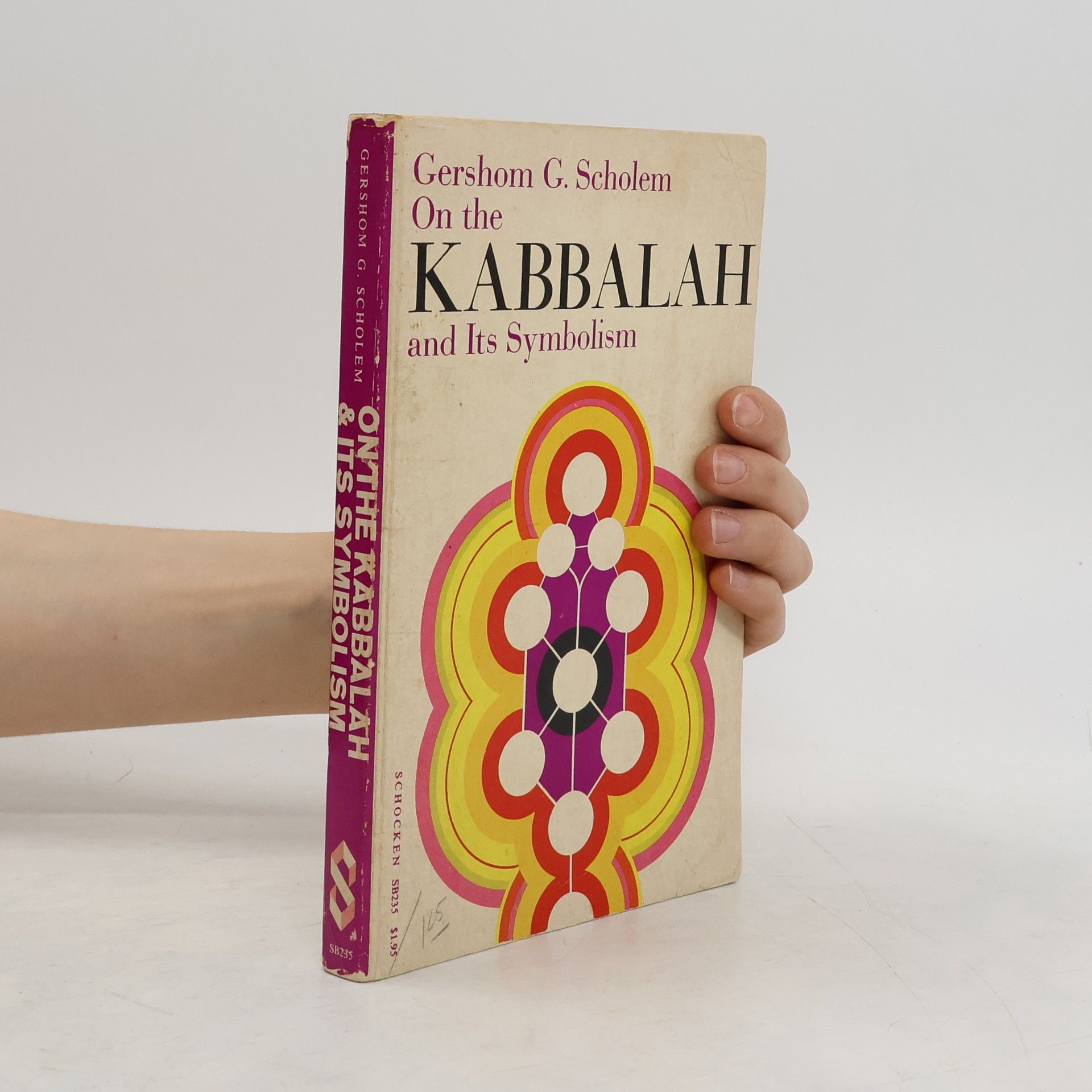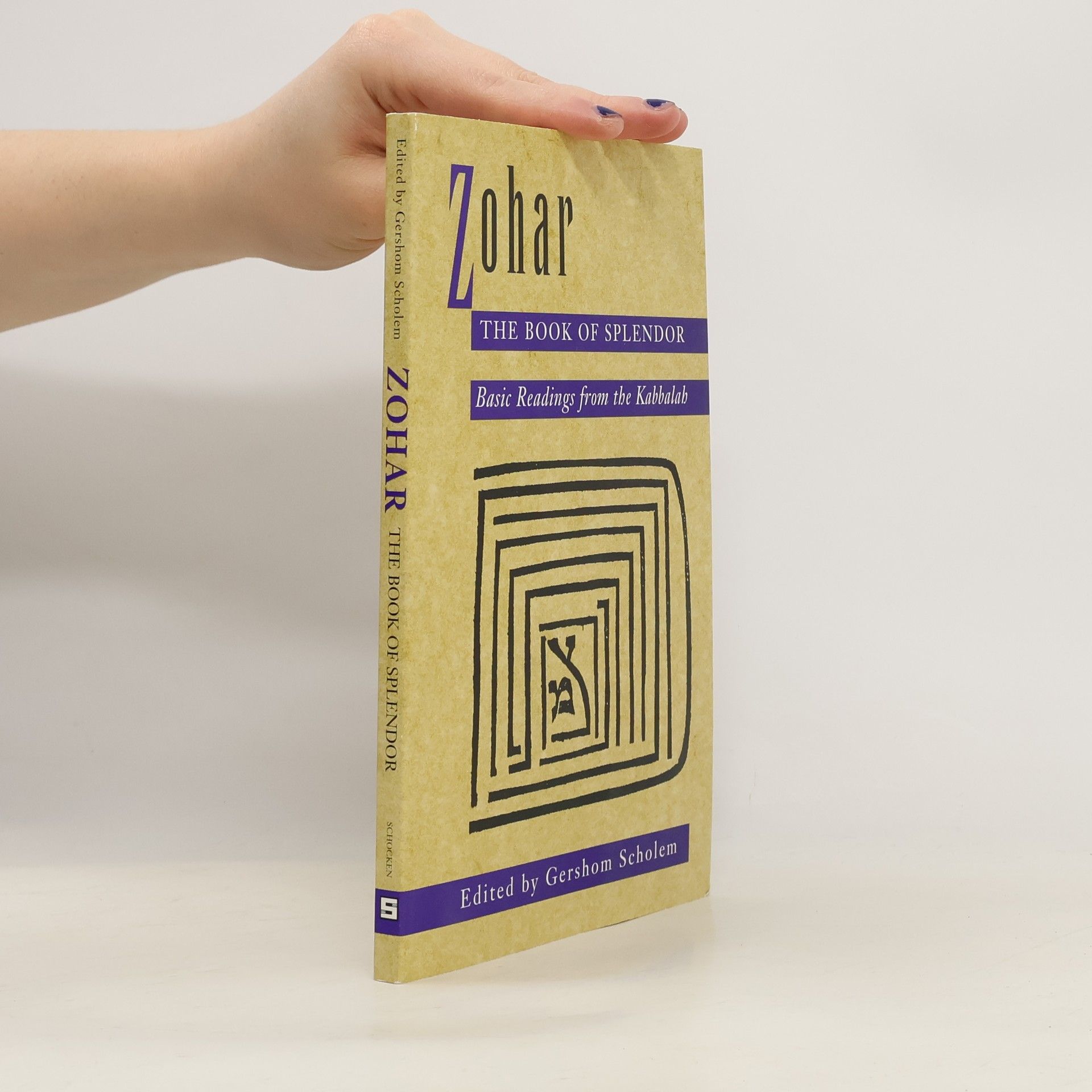Tagebücher nebst Aufsätzen und Entwürfen bis 1923
2. Halbband: 1917–1923
Gershom Scholem was a German-born philosopher and historian who pioneered the modern academic study of Kabbalah. His work delved into the depths of Jewish mysticism and its symbolism, significantly contributing to the dissemination of knowledge on these subjects among a wider audience. Scholem explored the complex themes of mystical traditions and their historical development, emphasizing their intellectual and spiritual significance. His legacy lies in his systematic approach to understanding and making accessible this fascinating realm of Jewish thought.







2. Halbband: 1917–1923
The correspondence between Theodor W. Adorno and Gershom Scholem reveals a deep intellectual friendship that blossomed despite their initial differences and mutual hostility. Spanning over thirty years, their letters cover a wide array of subjects, including philosophy, religion, history, politics, literature, and the arts. Additionally, they reflect on the life and work of their mutual friend, Walter Benjamin, showcasing the dynamic exchange of ideas between two influential thinkers in the 20th century.
Korespondence s významným religionistou, filosofem Gerhardem (Gershomem) Scholemem začíná v době, kdy Hannah Arendtová zápasí ve francouzském exilu o holou existenci. Spojovacím článkem mezi nimi je osud Scholemova přítele Waltera Benjamina, s nímž se Arendtová seznámila v emigraci v Paříži a který jí před jejím odjezdem do USA svěřil své rukopisy. Benjaminovi se však z Evropy uniknout nepodařilo – roku 1940 spáchal sebevraždu na francouzsko-španělské hranici. V jednom z prvních dopisů informuje Scholema, který v té době žije už skoro dvě desetiletí v Palestině, o jeho tragickém osudu. Rozbíhá se tak dlouholetý dialog mezi New Yorkem a Jeruzalémem a mezi dvěma protichůdnými osobnostmi – nezávislou politickou teoretičkou Arendtovou a přesvědčeným sionistou Scholemem, profesorem na Hebrejské univerzitě v Jeruzalémě a autorem zásadního díla o židovské mystice a kabale (Major Trends in Jewish Mysticism). Asi
Ein Kapitel aus dem kabbalistischen Buche Sohar
Scholemovy Hlavní směry židovské mystiky jsou dnes už klasickou oborovou prací, již ocení nejen odborníci – hebraisté, religionisté či historici filosofie; jelikož autor vykládá látku systematicky, přehledně a čtivě, dílo je přístupno i širší kulturní čtenářské obci. Kniha vyšla nejprve v anglickém autorizovaném překladu již v roce 1941 (Shocken Publishing House) a v němčině pak pod titulem Die jüdische Mystik in ihren Haupströmungen v roce 1957 v nakladatelství Suhrkamp. Dílo bylo pak přeloženo do řady jazyků a znovu a znovu vydáváno v němčině a v angličtině. Mezi českými hebraisty ji vysoce oceňoval např. prof. Vladimír Sadek – např. v jeho knize Židovská mystika (2003), v níž se zabývá převážně kabalou, je na Scholema mnohokráte odkazováno. Vydání této knihy v českém překladu Martina Machovce zaplňuje velkou mezeru, která v tomto oboru až doposud v české překladové literatuře existovala.
Na formování pojetí mesiáše a vykoupení v judaismu se podle G. Scholema (1897–1982) podílely zejména restorativní a utopické proudy, které dále přetvářely staré dědictví apokalyptiky. V esejích obsažených v tomto sborníku si autor všímá katastrofického a revolučního prvku židovského mesianismu i rozdílů oproti křesťanství ohledně vnitřního a vnějšího aspektu spásy. Zabývá se souvislostmi s kabalistickým chápáním nápravy světa; rozebírá antinomické tendence, vyjádřené v heretické koncepci „vykoupení skrze hřích“ a rozvinuté v lžimesiášských hnutích sabatianismu a frankismu v 17. a 18. století. V naukách východoevropského chasidství pak spatřuje jistou neutralizaci mesiášského napětí vedoucí k přesunu důrazu na osobní sféru člověka. Další eseje se týkají vybraných témat z dějin židovského náboženství a literatury.
Gershom Scholem se v knize zamýšlí nad tím, nakolik lze některé prvky židovské mystiky formativního období judaismu nazvat „gnostickými“ a nad jejich styčnými body i rozdíly ve srovnání s řeckou, křesťanskou či mandejskou gnostickou tradicí. Na studiu vybraných témat (spekulace o míře Těla a Božím oděvu, metatronovská mystika atd.) se věnuje jejich interpretaci uvnitř judaismu, která je nakloněna spíše etablující se ortodoxní linii a ač se v některých ohledech nevyhýbá cizím vlivům, postrádá dualistické vyhrocení. K tehdejším rozborům řeckých magických papyrů a počínajícím diskusím o svitcích od Mrtvého moře přidává odbornou reflexi hejchalotické literatury, jež v té době ještě nebyla kriticky zhodnocena a stála spíše na okraji zájmu badatelů. Kniha obsahuje Scholemovu (tj. první úplnou) edici hejchalotické makroformy Ma‘ase merkava a také vyhledávací studii Saula Liebermana (1898–1983) k ústní tradici o Písni písní.
Mytické zárodky některých z nich sice vidí již ve starověkých představách, ty však začínají nabývat své nejznámější podoby mystických symbolů teprve s dějinnými počátky kabaly v raném středověku. V každé její vývojové fázi (od dob knihy Bahir, jihofrancouzské a španělské kabaly, přes období Zoharu a safedských mystiků až po lurjánskou a chasidskou nauku) autor nachází nové prvky, jimiž se konkrétní pojem obohacuje, případně přetváří.
Počátky kabaly - anotace Gershom Scholem (1897-1982), jeden z nejvýznamnějších židovskýchmyslitelů 20. století, v tomto díle podrobně analyzuje původ a ranástadia vývoje kabaly, což je bezesporu jednou z nejobtížnějších anejdůležitějších otázek náboženských dějin judaismu. Popisuje rozličnéproudy, které dokážeme rozlišit u nejstarších kabalistů, počínaje prvnímnástupem kabaly v knize /Bahir/ zhruba v polovině 13. století. Přitomseznamuje čtenáře s různými náboženskými a obecně historickými faktorypůsobícími v době, kdy kabala usilovala o svou krystalizaci. Ve svých\\\"Počátcích kabaly\\\" Scholem sleduje především gnostické a novoplatónskévlivy na raně kabalistické myslitele. Kabala v tomto období svého vývojevychází dle Scholema ze tří hlavních center: z Provence, Kastilie a Gerony.